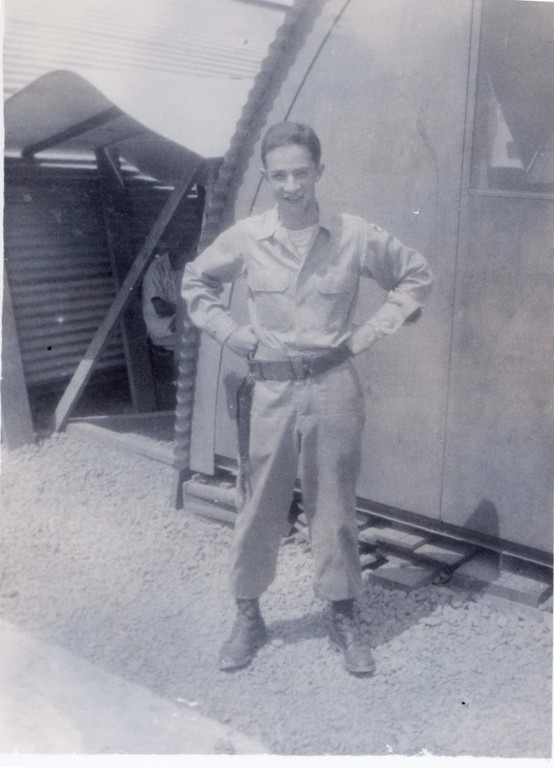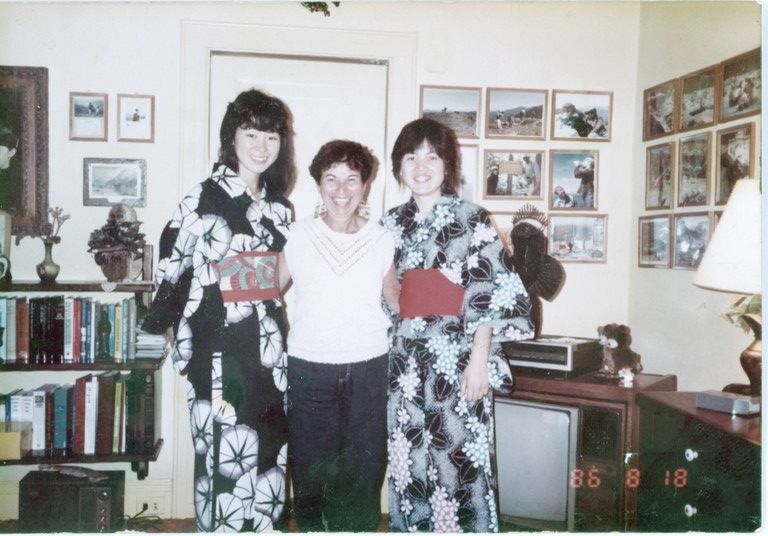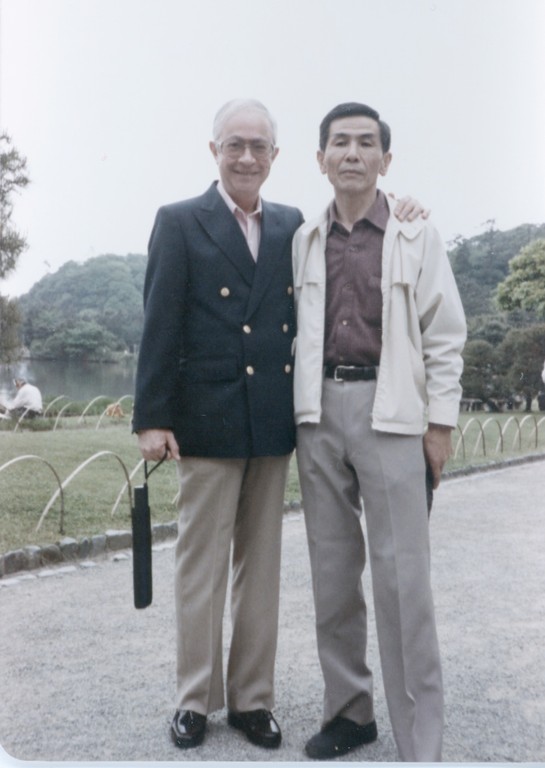Sustaining a friendship through three generations
Woodmere’s Herman Kirschen recounts a World War II story
In October 1945, I was a nearly 19-year-old corporal in the infantry of the U.S. Army, who sailed in a Navy convoy for 21 days to Yokohama, Japan to be part of the occupying force in that defeated country following the end of World War II.
It was only two months after its surrender, and Japan was a country almost totally destroyed by U.S. bombing with no infrastructure. The island nation had barely any food, shelter or sanitation. The best job a Japanese person could get was with the U.S. Army, where food, clothing and sometimes shelter could be obtained.
Iwao Kirigaya, was then a 15-year-old orphan due to the war, who got a job as a houseboy for an Army barracks where 40 soldiers, including me, lived. He swept floors, made the beds and ran errands in return for food, a place to sleep and clothing.
I was a young man from Brooklyn, who had never been out of his native city until being drafted and sent to Ft. McClellan in Alabama for training. I saw a young boy who was harassed constantly by Army personnel angered by the cruelty of Japanese soldiers during the war. I, however, liked Kirigaya, and took him under my wing. We became friends.
By applying the accounting training began before entering the Army, I was put in charge of three other men and we did the payroll for the Merchant Marines Army Transport Service. After being discharged from the Army in January of 1947, I returned to Brooklyn, continued my studies at City College and became a self-employed certified public accountant. I lost track of Kirigaya, but never forgot him.
In 1985, four decades after I was in Japan, my wife, Jean, and I decided to visit the Asian nation and try to find my friend. But, first I called the Japanese Embassy here and found out there were three million people now living in Yokohama.
I obtained 30 addresses with the name Kirigaya and sent letters to all. Bingo! I made contact with Iwao. He wrote back that he remembered me with “great fondness and gratitude.” Kirigaya had done well having gotten a job with the City of Yokohama purchasing and maintaining the city’s heavy-duty construction equipment through the years that Yokohama had been rebuilt. He had done well for himself.
When my wife and I traveled to Yokohama we were met by Kirigaya, his family and an English-speaking friend with open arms. We stayed at Kirigaya’s lovely home, slept on the floor and bathed in his ofuro (a very hot tub). The visit was a great success, helped by my learning of the Japanese language, which began as a hobby.
A year later, Kirigaya’s daughter, Yumi, then 22, and a friend came to the U.S., visited us in our Woodmere home and we gave them a whirlwind tour of New York City.
In 1989, Kirigaya and his wife, Yoshiko, came to the U.S. and also stayed with us. The most recent visit was last month, when Kirigaya’s granddaughter, Minogi Hasegawa, Yumi’s daughter, stayed with us in Woodmere.
Kirigaya and I kept in touch throughout the years, speaking many times by telephone. My friend died in 2010, but the friendship that began 66 years ago has been maintained through two more generations.
Herman and Jean Kirschen have lived in Woodmere for nearly 50 years.











